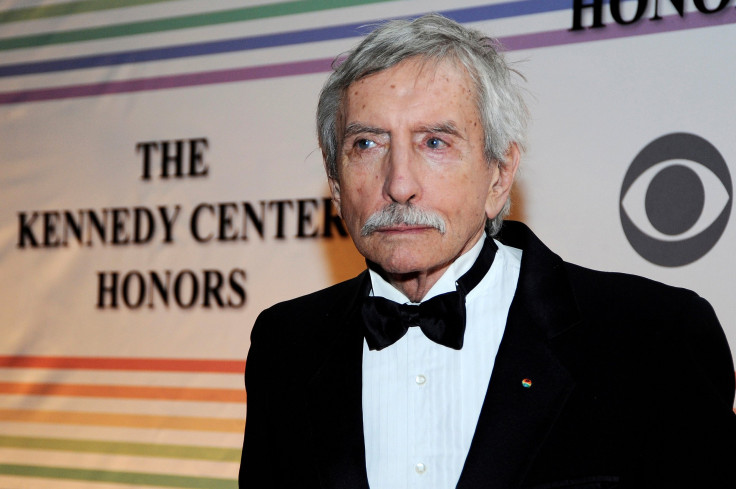Edward Albee Dead: 15 Quotes To Remember Three-Time Pulitzer Prize-Winning Playwright

Three-time Pulitzer Prize winner Edward Albee died Friday at his home in Long Island near New York. The 88-year-old died of a short illness, his personal assistant, Jakob Holder, reportedly said.
Albee was notably America's greatest living playwright after the deaths of Arthur Miller and August Wilson in 2005. His best known work was "Who's Afraid of Virginia Woolf?" which was a controversial 1962 Broadway hit. It was later made into an Oscar-winning film in 1966 starring Elizabeth Taylor and Richard Burton. The work received the Tony Award for best play.
"I find Virginia Woolf hung about my neck like a shining medal of some sort - really nice but a trifle onerous," Albee reportedly described the effect of the play's success in 1966.
Albee received the Pulitzer prize for "A Delicate Balance," "Seascape" and "Three Tall Women." His drama about a love affair between a man and a beast, “The Goat, or Who Is Sylvia?,” won another Tony Award. The other notable awards that he received included a Gold Medal in Drama from the American Academy of Arts and Letters in 1980, and in 1996 he received the prestigious Kennedy Center Honors and the National Medal of Arts.
Albee, who was born in Virginia on March 12, 1928, said in interviews that he knew he was gay by the time he was eight and had his first homosexual experience at 12. Little information is available about his father, but in the 1999 biography, “Edward Albee: A Singular Journey,” the author Mel Gussow, cited adoption papers — filed in Washington within days of his birth — that said his father “had deserted and abandoned both the mother and the child and had in no way contributed to the support of the child.”
A few years ago, Albee penned a note saying that it should only be released at the time of his death: "To all of you who have made my being alive so wonderful, so exciting and so full, my thanks and all my love."
Here are some quotes remembering the iconic playwright.
- “Sometimes a person has to go a very long distance out of his way to come back a short distance correctly.” — The Zoo Story
- "Good writers define reality; bad ones merely restate it. A good writer turns fact into truth; a bad writer will, more often than not, accomplish the opposite." — Saturday Review, May 4, 1966
- "You gotta have swine to show you where the truffles are" — Who’s Afraid of Virginia Woolf?
- "I don't feel that catharsis in a play necessarily takes place during the course of a play. Often it should take place afterward."
- “If you have no wounds, how can you know if you’re alive?” — The Play About the Baby
- “A play is fiction — and fiction is fact distilled into truth.” — The New York Times, Sept. 18, 1966
- “The gods too are fond of a joke.” — Who’s Afraid of Virginia Woolf?
- "What I mean by an educated taste is someone who has the same tastes that I have."
- “Unless you are terribly, terribly careful, you run the danger — without even knowing it is happening to you — of slipping into the fatal error of reflecting the public taste instead of creating it. Your responsibility is to the public consciousness, not to the public view of itself.”
- “I have a fine sense of the ridiculous, but no sense of humor.” — Who’s Afraid of Virginia Woolf?
- “Sincerity doesn’t mean anything. A person can be sincere and be more destructive than a person who is insincere.” — Wagner Literary Magazine, 1962
- “Some writers’ view of things depends upon the success of the final result. I’d rather stand or fall on my own concepts.” — Interview with The Paris Review, 1966
- “Dashed hopes and good intentions. Good, better, best, bested.” — Who’s Afraid of Virginia Woolf?
- “Being different is … interesting; there’s nothing implicitly inferior or superior about it. Great difference, of course, produces natural caution; and if the differences are too extreme … well, then, reality tends to fade away.” — Seascape
- “Every monster was a man first.” — Tiny Alice
© Copyright IBTimes 2024. All rights reserved.





















